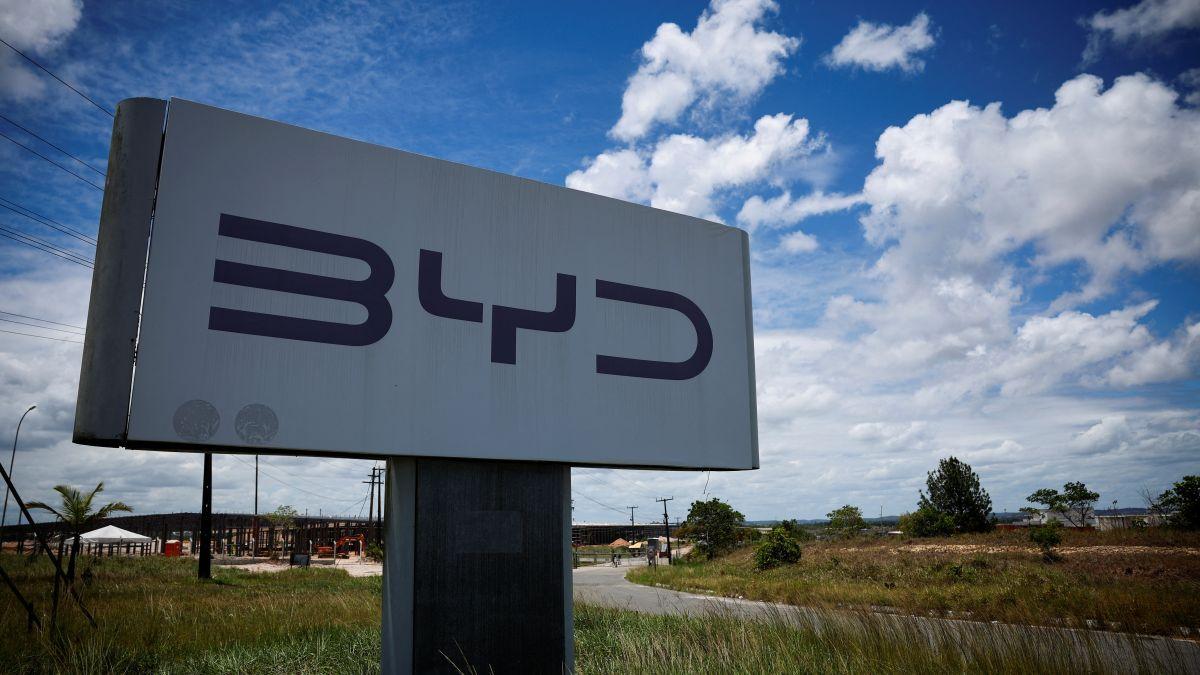Brazilian authorities have rescued 163 workers from conditions similar to 'slavery' at a construction site for a factory of Chinese electric vehicle company Build Your Dreams (BYD) in Camacari, Bahia.

The workers, employed by the outsourced company Jinjiang Group, faced degrading living and working conditions, including inadequate lodging, poor sanitation, and withheld wages.
The site and accommodations have been shut down until compliance is ensured, the Public Labour Prosecutor's Office (MPT) said.
In a statement issued on Monday, MPT said, "The rescue of 163 workers who were being held in conditions analogous to slavery and the closure of the lodgings and parts of the construction site of the plant where the car manufacturer Build Your Dreams (BYD) is installing a factory in the municipality of Camacari, in the metropolitan region of Salvador, was communicated on Monday morning to the company and to Jinjiang Group, one of the contractors hired to carry out the work.
"The rescued workers will remain in the lodgings, but will not be able to work and will have their employment contracts terminated."
"The embargoed accommodations and construction sites will also remain inactive until they are fully regularised with the agencies that make up the task force," the statement added.
During the series of inspections, which began in mid-November and will continue over the next few days, 163 workers were identified in conditions analogous to slavery at the outsourced company Jinjang, a service provider for BYD.
"These workers were distributed across four main lodgings, two located on Rua Colorado and two on Rua Umbus, in the municipality of Camacari. A fifth lodging, intended for workers in administrative roles, was also inspected, but despite identifying some irregularities, no workers were rescued," the MPT said.
It further said, "The conditions found in the lodgings revealed an alarming picture of precariousness and degradation. In the first lodging on Colorado Street, the workers slept on beds without mattresses and had no lockers for their personal belongings, which were mixed in with food supplies. The sanitary situation was especially critical, with only one bathroom for every 31 workers, forcing them to wake up at 4 am to form a line and be ready to leave for work at 5.30 am."
All the accommodations shared serious infrastructure and hygiene problems.
The bathrooms, in addition to being insufficient, were not separated by sex, did not have adequate toilet seats and presented poor hygiene conditions.
The situation in some of the food courts was equally precarious.
The kitchens operated in alarming conditions, with no adequate cupboards for food storage.
The MPT added, "The conditions at the construction site also revealed serious irregularities. The cafeteria at the workplace used coolers to serve meals, without ensuring minimum hygiene conditions. The chemical toilets, only eight for approximately 600 workers, were in a deplorable state, without toilet paper, water or adequate maintenance, in addition to not respecting the minimum distances established by regulation."
The workers were also exposed to intense solar radiation, showing visible signs of skin damage.
In addition to the degrading conditions, the situation constituted forced labour, due to several indicators found during the inspections.
"The workers were required to pay a deposit, had 60 per cent of their wages withheld (receiving only 40 per cent in Chinese currency), faced excessive costs for terminating their contracts, and had their passports withheld by the company. Early termination of the contract implied the loss of the deposit and the amounts withheld, in addition to the obligation to pay for the return ticket and reimburse the cost of the outward ticket," the MPT said.
BYD was established in February 1995, headquartered in Shenzhen, Guangdong Province, with its business spanning four major industries -- automobile, rail transit, renewable energy, and electronics.